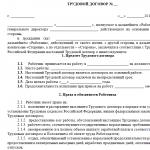Professions in French. Professions in French Profession lawyer description in French
Qui voudrais-je être?
La question de la future profession inquiète de plus en plus de gens depuis l’enfance. Quant à moi, je suis tout à fait stupéfait d’être obligé de choisir un métier quelconque! C'est naturel: je ne suis pas assez grande pour savoir exactement ce qui est plus interior pour moi!
Mais, malgré mon âge qui me permet encore de ne pas décider, je dois avouer que dans ma tête il y a déjà quelques idées à propos cette question-là. Puisque ma mère travaille comme professeur, c’est son métier que j’ai voulu apprendre. Tout mon enfance j'essayais d'imiter maman: j'allais avec elle au travail, j'assistais à ses cours. Mais ce qui était le plus agréable pour moi c’était la possibilité d’écrire avec la craie sur le tableau!
Après ça, c'était la période de mon adolescence et c'est en ce moment-là que j'ai essayé d'analyser mes propres préférences et mes propres savoirs-faire. A l'aide des résultats appris j'ai réussi à concretiser quelques professions possibles pour moi.
Tout d'abord, c'est le métier de traductrice: puisque je connais très bien deux langues étrangères, il est probable que dans le futur je deviendrai traductrice. Ensuite c'est la profession de journaliste: il n'y a pas assez longtemps que j'ai commencé à créer des articles pour les journaux. Je le trouve très original et très intéressant! De temps en temps je m'intéresse à la médecine, mais je ne suis pas totalement sûre que je pourrai soigner les gens chaque jour. Oui, bien sûr, j'aime aider les gens qui en ont besoin, mais pas de la sorte.
Maintenant je n'ai pas encore choisi ma future profession, mais je pense que je le trouverai enfin. A mon avis, le plus important dans le choix du métier est l’intérêt de la personne qui travaille: seulement de telle manière il est possible de réussir et d’avoir du succès.
The question of their future profession worries more and more people since childhood. As for me personally, I am shocked by the need to choose a profession! And this is natural: I am not yet old enough to know exactly what is more interesting for me!
But, despite my age, which still allows me not to make a decision, I must admit that I already have several ideas about this in my head. Since my mother works as a teacher, at first it was her profession that I wanted to learn. All my childhood I tried to imitate my mother: I went to work with her, attended her classes. But the most enjoyable thing for me was the opportunity to write with chalk on the blackboard!
After this came the period of adolescence and at this time I tried to analyze my own preferences and my own practical skills. Using the results obtained, I was able to specify the professions that are possible for me.
First of all, this is the profession of a translator: since I speak two foreign languages very well, it is possible that in the future I will become a translator. Then comes the profession of journalist: not so long ago I started writing articles for newspapers. I find this activity very original and very interesting! I'm interested in medicine from time to time, but I'm not entirely sure I can treat people every day. Yes, of course, I love helping people who need it, but not in this way.
Now I have not yet chosen my future profession, but I believe that I will finally decide on it. In my opinion, the most important thing in choosing a profession is the interest of the person who takes on his duties: only in this way can achieving results and success become a real possibility.
|
Ah, bonjour, Veronique! Comment tu vas? Tu travailles? |
Hello, Veronica! How are you? Do you work? |
|
- Ça va, merci! Oui, je suis professeur d'anglais à l'université. Mais je suis en vacances depuis hier. Et toi, Alexb qu’est-ce que tu fais dans la vie? |
OK, thank you! Yes, I am an English teacher at a university. But I've been on vacation since yesterday. And you, Alex, what do you do? |
|
- Je travaille comme informaticien dans une grande entreprise. |
I work as a programmer in a large company |
|
- Ah, c'est très bien! Et tu gagnes bien ta vie? |
This is cool! And do you make good money? |
|
Oui, pas mal. |
Not so bad. |
|
Et ta femme, quelle est sa profession? |
And your wife, what is her profession? |
|
- Elle est responsable des ventes. Elle dirige aussi une équipe de 20 personnes. |
She is a sales manager. She also leads a team of 20 people |
|
- Ça alors! |
Wow! |
|
Et ton mari, quel est son métier? |
And your husband, what is his profession? |
|
- Il est médecin, chirurgien. Il travaille jour et nuit. Et notre fille veut devenir infirmière. Et tu sais que Pauline est devenue réalisatrice? Elle est une bonne realisatrice! |
He is a doctor, a surgeon. He works day and night. And our daughter wants to become a nurse. Do you know that Polina became a director? She's a good director. |
|
Ah, bon! Mais c'est genius! |
Yes? This is cool! |
|
Bon, passe une bonne journée et à bientôt! |
Okay, have a nice day and see you soon! |
Now let's learn a few more phrases that will be useful when talking about work.
Je travaille comme coiffeur. – I Working hairdresser
Je suis ingenieur. – I engineer
Je travaille dans la mode.– I Working V fashion
Je dirige mon propre entreprise - I I manage own company
Mon travail est intéressant - My Job interesting
Quelle est votre (ta) profession ?– Which yours ( yours ) profession ?
Qu’est-ce que vous faites (tu fais) dans la vie?- What do you do (do you do) in life?
Qu ’ est - ce que vous faites comme travail ( m é tier ) ? - Verbatim - What do you do for work? (the meaning of this expression is similar to the previous ones)
Vous travaillez dans quel domaine? - What field do you work in?
Below is a table with a list of the most popular professions
Les noms de professions
|
Profession in m.r. |
Profession in zh.r. |
Translation |
|
Architecte |
Architecte |
Architect |
|
Artisan |
Artisane |
Craftsman |
|
Avocat |
Avocate |
Advocate |
|
Boulanger |
Boulangè re |
Baker |
|
Caissier |
Caissiè re |
Cashier |
|
Coiffeur |
Coiffeuse |
Hairdresser |
|
Comptable |
Comptable |
Accountant |
|
Cuisinier |
Cuisinihere |
Cook |
|
Danseur |
Danseuse |
Dancer, dancer |
|
Directeur |
Directrice |
Director |
|
Enseignant |
Enseignante |
Teacher |
|
Infirmier |
Infirmiè re |
Nurse , nurse |
|
Ingé nieur |
Ingé nieur |
Engineer |
|
Journalist |
Journalist |
Journalist |
|
Mé decin |
Mé decin |
Doctor |
|
Musician |
Musicienne |
Musician |
|
Ouvrier |
Ouvriè re |
Worker |
|
Peintre |
Peintre |
Artist |
|
Professeur |
Professeur |
Teacher |
|
Réalisateur |
Réalisatrice |
Director |
|
Server |
Serveuse |
Waiter |
|
Traducteur |
Traductrice |
Translator |
|
Vendeur |
Vendeuse |
Today's topic will be both lexical and grammatical.
Let's look at professions in French and their grammatical gender. We will also get acquainted with 25 professions in French.
Gender of nouns denoting professions
So, nouns denoting professions may or may not have a feminine or masculine category.
That is, some professions do not change by gender, but some do.
It's the same in Russian.
Compare:
- architect - in Russian a woman will also be called “architect” (with the exception of the colloquial “architect”, etc.);
- dentist;
- teacher;
- operator;
- deputy
- obstetrician - midwife;
- athlete - sportswoman;
- teacher - teacher;
- seller - saleswoman.
All the latest variants of the feminine gender also refer to the neutral style - these are not vernacular variants. Although we can use the masculine form to refer to a female person. Most often, this form is used in official sources.
For example: Honored teacher Margarita Dmitrievna Ivanova received a state award.
In French, many professions also change according to gender. Most often the endings change.
For convenience, I will collect the rules in a table:
| Masculine ending | Feminine ending | Examples |
| -er | -ère | boulang er– boulang here |
| -ien | -ienne | optit ien– optical ienne |
| -eur | -euse | coiff eur– coiff euse |
| -teur | -trice | realisa teur– realisa trice
BUT! Exception: Chan teur– chan teuse– singer – singer (any, pop, for example) There is a word cantatrice– opera singer (exclusively this meaning) |
| -iste | -iste | un dentist e – une dentist e– the form of the word does not change, but the article changes to the feminine form |
| -e | -e | un photograph e – une photograph e– the same as in the previous case |
In this table I have reflected the basic rule. There are other professions, there are some exceptions. But in general, this rule contains most of the explanations for the formation of feminine professions in the French language.
Additional explanations
This applies to those professions whose form does not change by gender. Most often, these include professions ending in -e, -iste, plus those professions that historically have always been considered purely male, but are now quite actively available to women.
Some professions that were previously unchanged by gender now have a feminine form (for example, un écrivain – une écrivain– in addition to the article, the standard feminine ending of nouns is added –e).
- In colloquial speech To distinguish gender, the article changes - as in the table. For example, un architecte – une architecte, un guide – une guide. If professions end in –e, then these forms are the norm for the literary language.
- In literary language The word femme is used to denote the feminine gender. For example, une femme pompier - a female firefighter.
- In a literary language, if the word femme is missing, then the masculine article is retained. As a rule, as in the Russian language, gender is clear from the context. For example, Elle est un médecin expérimenté. She is an experienced doctor.
Vocabulary – 25 professions in French
In my vocabulary topics, I will not introduce huge lists of vocabulary.
If you want to learn a hundred professions, including archivist and the like, then you are no longer new to the French language and will find them yourself in the huge number of available sources.
For those whose level is not yet high, the list below will be enough to get started. Especially on one topic. And even more so at the same time. A dosed amount of vocabulary is most likely to be stored in long-term memory.
I will give a list of 25 common professions with masculine and feminine forms, which are always heard and can be useful in everyday communication or while traveling (for language learners for tourist purposes):
| Masculine | Feminine | Translation |
| un professeur | un professeur | teacher |
| un medecin | un medecin | doctor |
| un journalist | une journalist | journalist |
| un avocat | une avocate | advocate |
| un coiffeur | une coiffeuse | hairdresser |
| un couturier | une couturière | tailor, fashion designer |
| un veterinaire | une veterinaire | vet |
| un pompier | un pompier | firefighter |
| un police | une policière | police officer |
| un programur | un programur | programmer |
| un photograph | une photograph | photographer |
| un realisateur | une realisatrice | director |
| un chanteur | une chanteuse | singer |
| un acteur | une actrice | actor |
| un architecte | une architecte | architect |
| un chef | un chef | Chef |
| un cuisinier | une cuisinière | cook |
| un serveur | une serveuse | waiter |
| un dentist | une dentist | dentist |
| un vendeur | une vendeuse | salesman |
| un pharmacien | une pharmacienne | pharmacist |
| un comptable | une comptable | accountant |
| un artiste paintre | une artiste paintre | artist |
| un musicien | une musicienne | musician |
| un ecrivain | une ecrivaine | writer |
Future profession
Dans ce texte en français, je vais parler de la future profession. En terminant les études au lycée, c'est l'affirmation de nous-même dans la vie. Parmi les jeunes les uns font leur propre choix, tandis que les autres suivent les conseils de leurs parents.Mais quels sont les critères essentiels pour le choix de notre future profession?Avant tout elle doit nous intéresser. L'activité que nous aimons bien est une des composantes de la vie heureuse. Il ne faut pas oublier qu’il est nécessaire de gagner la vie. Un travail formidable ne sera pas satisfaisant pour vous si vous avez faim.De plus nous devons nous rendre compte des problèmes actuels du chômage et notre choix doit nous permettre d'être plus ou moins facilement embauché.Il y a une aspiration individuelle, de la sympathie envers une profession.Quand à moi, c'est le deuxième facteur qui est décisif parce qu'il est impossible de bien faire son travail si tu ne l'aimes pas même s'il est prestigieux.
Mais ici, dans notre pays je voudrais devenir architecte.C'est une profession avec beaucoup de perspectives.Je la trouve plus interessante et attractive.Je veux créer et cette profession m'offrira cette possibilité.Je voudrais construire de beaux édifices pour apporter du bonheur aux hommes et rendre mon pays plus beau et riche.Notre profession doit aider notre avenir.Tout le monde a le choix et ce qu'il sera dépend de nous.Pensez beaucoup avant de le faire.Il détermine notre avenir.J'espère que ce sujet en français pourra vous aider à décider beaucoup.
Future profession
In this topic in French I will talk about my future profession. After finishing high school, we begin to establish ourselves in life. Among young people, everyone makes their own choices while others follow the advice of their parents. But what are the main criteria for choosing a future profession? First of all, it must interest us. An activity that we enjoy is one of the components of a happy life. We must not forget that we have to earn a living. A great job is not satisfying if you are hungry. In addition, we must take into account the current problems of unemployment and our choice will allow us to get hired more or less easily. There are individual aspirations and liking for special professions. For me, this is the second factor, which is decisive, because it is impossible to do your job if you don’t like it, even if it is prestigious.
But here in our country I would like to become an architect. This is a profession with great prospects. I find her more interesting and attractive. I want to create, and this profession gives me such an opportunity. I want to build beautiful buildings to bring happiness to people and make my country more beautiful and rich. Our profession should help our future. Everyone has a choice and it will depend on us. Think a lot before you do it. It determines our future. I hope that this topic in French can help you decide.
Travailler Avoir un travail:
1.travailler = work. Elle travaille dans une petite boutique. Il travaille pour IBM-France. travailler = work = (boulonner), (bosser), (trimer) = work hard (familiers).
2.un travail= work, labor. II fait un travail très dangereux. J"aime mon travail.
3.avoir un emploi = avoir un travail = (avoir un job), (avoir un boulot) (familiers)= avoir une situation = avoir un travail= have a job.Elle a une bonne situation, elle est avocate.
4.occuper un poste = to hold a position = avoir un travail bien précis. Elle est candidate à un poste dans notre service.
5.avoir un métier = to have a profession, specialty: savoir faire quelque chose de précis, avoir reçu une formation professionnelle: Il a un bon métier, il est ingénieur.
6.exercer un métier = to work in one’s specialty: on peut avoir un métier, mais ne pas ou ne plus l"exercer. Il est médecin, mais il n"exerce plus, il a 75 ans. Il est ingénieur, mais il est sans travail pour le moment. On travaille pour gagner de l'argent, mais on ne devient pas forcement riche!
7.gagner sa vie = to earn a living. Mon fils n"a pas besoin d"aide, il gagne bien sa vie.
8.toucher de l "argent = receive money. Elle touche 2.000 € par mois.
9.toucher un salaire =to receive a salary. Elle touche un salaire de 2.000 € par mois.
10.un(e) salarié(e) = employee = une personne qui travaille et touche un salaire.
11.un(e) employé(e) employee, worker travaille pour quelqu"un, d"habitude dans un bureau.
12.un travailleur = worker: terme employé surtout par les communistes et les socialistes.
13.un travailleur manuel= manual worker: un homme qui travaille avec ses mains.
14.les horaires (m.)= opening hours = les heures de travail.
15. travailler à mi-temps = work half-time, à temps partiel = part-time // travailler à temps complet = work full-time.
16.Un travail à temps complet full-time work = 35 heures par semaine en France.
17.travailler au noir = work informally = travailler sans déclarer son salaire (donc sans payer d "impôts ni de charges sociales). Si vous travaillez au noir vous êtes en situation irrégulière.
Travailler / ne pas travailler
18.chercher un travail, un poste, un poste de (un poste de secrétaire, p. ex.) = look for a job.
19.être au chômage = ne pas avoir de travail = être chômeur / chômeuse = to be unemployed.
20.perdre son emploi = perdre son poste = perdre son travail = lose your job.
21.être mis(e) à la porte = être licencié(e)= to be fired = être congédié(e): soit parce qu"on a mal travaillé, soit parce qu"il y a des difficultés économiques. Renault a license 200 ouvriers pour des raisons économiques.
22.un licenciement = l"action de licencier = dismissal. Le premier minister promet qu"il n"y aura pas de licenciements dans le service public.
Mettre en grève, faire la grève, être en grève = refuser de travailler, afin d"obtenir de meilleures conditions de travail = to go on strike.
24.revendiker (une revendication): demander quelque chose= demand. Les ouvriers revendiquent de meilleures conditions de travail.
25.prendre sa retraite = to retire: s"arrêter de travailler à 60 ou 65 a pris sa retraite après avoir travaillé pendant plus de quarante ans.
LES PROFESSIONS
1. Animateur(trice) réseau-animator, program presenter
2.Antiquaire
3.Boucher(ère) Charcutier(ère) Traiteur(e)-butcher
4.Boulanger(ère) - baker
5.Chargé(e) d’expansion réseau - network administrator
6.Chef de rayon - Head of department
7.Chocolatier(ière)-confiseur- Chocolate merchant - confectioner
8.Coiffeur(euse)- Hairdresser
9.Concepteur - vendeur(euse) - sales specialist
10.Conseiller(ère) de vente - sales consultant
11.Cordonnier(ière)- Shoemaker
12.Employé(e)commercial(e)seller
13.Employé(e) de café - cafe worker
14.Fleuriste - florist, flower seller
15.Travailleurs manuels - Manual workers
16.Chauffeurs routiers - Car drivers
17.Techniciens - Engineers
18.Chefs / Cuisiniers - Chefs / Cooks
19 Personnels administratifs - Management personnel
20.Commerciaux - Sales department employees, sales workers
21.Infirmiers/Infirmières - Medical personnel (orderlies, nurses, caregivers)
22.Personnels de l"hôtellerie/restauration - Hotel and restaurant business workers
23.Personnels comptables et financiers - Accountants and employees of the financial authority
24 Informaticiens - Programmers and computer scientists.
Proverbes sur le travail:
1. Apprendre c"est travailler et travailler c"est vivre. Learning is to work, and to work means to live.
2. C"est le travail qui assure le progrès de l"humanité, sert la cause de la paix et de l"amitié entre les peuples. Work has created the progress of humanity, and serves the cause of peace and friendship between people.
3. C"est un jour perdu qu"un jour sans travail. A day without work has passed in vain.
4. Il faut regarder à ses mains plutôt qu"à ses pieds. You need to look more at your hands than at your feet.
5. Il faut travailler en jeunesse pour se reposer en vieillesse. Work when you're young so you can rest when you're old.
6. Il faut travailler pour qui veut manger. If you want to live, know how to spin.
7. L'homme naquit pour travailler, comme l'oiseau pour voler. Man is born to work, like a bird is born to fly.
8. Le travail d'abord le plaisir ensuite. Work first, pleasure later.
9. Le travail éloigne de nous trois grand maux - l "ennemi, la vice et le besoin. Work drives away three great evils from us: the enemy, vice and need.
10. Le travail est une chose dont l"homme ne peut pas se passer. Work is such a thing that a person cannot do without.
11. Les mains noires font manger le pain blanc. Black hands get white bread - soap is gray, but washes are white.
12. Pour le paresseux chaque jour est fête. Lazy, every day is a holiday.
13. Qui n "aime pas son métier, son métier ne l"aime pas. He who does not love his work will not achieve success in it.
14. Qui ne travaille pas ne mange pas. Who does not work shall not eat.
15. Soyez plutôt maçon si c"est votre talent. Be a mason if this is your talent.
16 Tous les métiers sont bons. Il n"y a pas de sottes métiers, il y a de sottes gens. All professions are good. There is no stupid craft, there are only stupid people.





